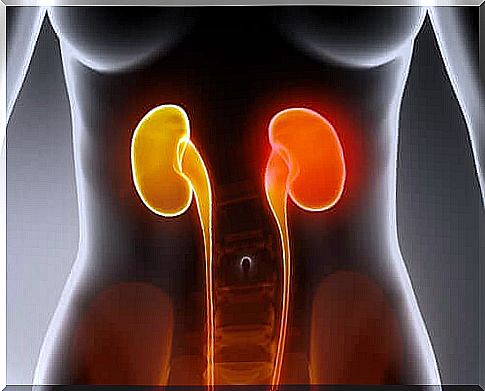Hyperphosphatemia: Excessive Phosphate In The Blood

Hyperphosphatemia occurs when the level of phosphorus in the blood is above the normal standard (inorganic phosphorus). Normal phosphorus values are between 2.5 and 4.5 mg/dL. A doctor will usually diagnose hyperphosphatemia when the blood test reports readings greater than 4.5 mg/dL.
Phosphorus (phosphate) performs many important functions in the human body. It is actually a macro mineral that the human body needs to perform certain metabolic functions that it would otherwise not be able to perform.
Most of the phosphorus in our body is in the skeleton. The rest is in the tissue cells and generates energy. As you can imagine, the bones and teeth are most affected when there is a deficiency or excess of phosphorus.
In general, humans get phosphorus from food, especially when we follow a varied diet. Under normal circumstances, the excess phosphorus needed by the body does not pass through the urine and faeces.
The biggest sources of phosphorus you can get from food are in red and white meats, and nuts like almonds. Dairy products, such as milk, yogurt or cheese are another good source. Some countries have food laws that force industry to fortify certain products with this mineral.
The causes of hyperphosphatemia
Hyperphosphatemia has become more common over the years as renal failure is the main cause, which is much more common in the elderly than in the young. However, there are also other causes of hyperphosphatemia:
- Hypoparathyroidism. This is when the parathyroid hormone regulates the metabolism of phosphorus and calcium. In hypoparathyroidism, there is low or no production of this hormone, which can lead to a decrease in calcium and an increase in phosphorus in the blood.
- Hypervitaminosis D. In this scenario, there is a relationship between vitamin D and calcium and phosphorus regulation. This is because a dysfunction in the parathyroid glands changes vitamin D, but sometimes also because the level in the blood is high for another cause. Thus, it can increase the amount of phosphorus in the blood.
- High phosphorus consumption. However, this type of hyperphosphatemia is rare. When the body functions properly, it eliminates excess urine and feces so that they cannot accumulate.
- Prolonged exercise. The strenuous and prolonged exercises that damage the muscles release phosphorus from the muscle cells into the blood.
- Chemotherapy. When a patient undergoes chemotherapy as a cancer treatment, the rapidly dying cells also release their internal phosphorus into the blood, leading to hyperphosphatemia. We call this tumor lysis syndrome along with other symptoms that also result from chemotherapy.

The Symptoms of Hyperphosphatemia
When doctors find an elevated phosphate level in the blood, it’s actually more of a coincidence than investigation due to symptoms. The data becomes visible in most cases because they have requested a general blood test to assess other conditions in a particular person.
People with hyperphosphatemia rarely show symptoms due to the increase in phosphorus levels in their blood. However, they often see a doctor because of kidney or muscle problems arising from their hyperphosphatemia.
Usually the calcium level decreases when the phosphorus concentration in the blood increases, leading to hypocalcemia. In this case, the muscles will cramp more often and even spasms may occur.
The alteration of the arterial walls is another long-term consequence. There can be an excess of phosphorus in the walls of the blood vessels, in combination with calcium, and it contributes to arteriosclerosis. That, in turn, increases the risk of serious cardiovascular problems.

Therapy
When an underlying disease such as kidney failure or hypoparathyroidism is the reason for hyperphosphatemia, a doctor will turn to treatment to try to correct it.
There are three alternatives to treat excess phosphorus, namely:
- A low-phosphate diet : This is a diet that contains no more than 1,000 milligrams of phosphorus per day. It should be followed under the supervision of a nutritionist.
- Dialysis: Artificial blood filtering supplements promote kidney function when not at maximum capacity.
- Chelators: There are drugs that can bind with the phosphorus that enters the body along with the food. This is to make sure the gut absorbs it. Thus, the phosphorus goes back out without reaching the blood system.
Of course, only a doctor can determine which treatment should be followed in which case. Extreme measures are usually not necessary, so don’t worry if your blood test results indicate hyperphosphatemia. You should always consult a doctor who can tell you the best measures to take.









